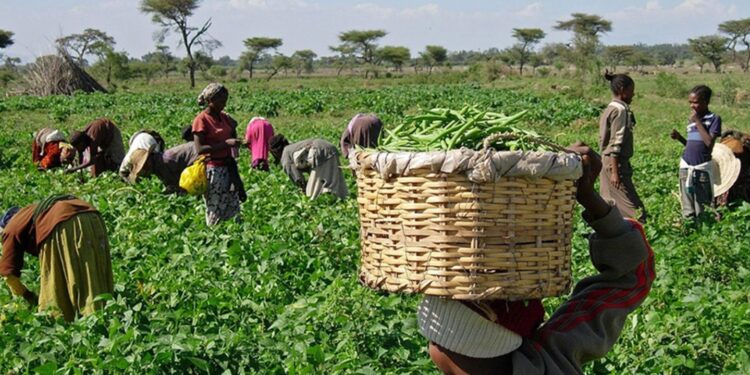The Federal Government has reaffirmed its commitment to enhancing food security in Nigeria through a range of initiatives aimed at improving food production and fostering sustainable agricultural practices.
The initiatives were unveiled during the 46th National Council on Agriculture and Food Security meeting held in Calabar, Cross River State.
Senator Abubakar Kyari, the Honourable Minister for Agriculture and Food Security, outlined several priority actions during his address at the meeting.
“As priority actions, ongoing tasks include the delivery of agro-inputs to farmers, the repositioning of agricultural institutions, and deepening engagement among farmers, herders, and communities,” he stated.
In addition, the minister highlighted other collaborative efforts such as enhancing water resource irrigation schemes, improving soil fertility and information systems etc.
“Other initiatives include collaboration on water resource irrigation schemes, soil fertility and information systems, the establishment of laboratories in research institutes, and the repositioning of relevant universities, faculties, and colleges,” Kyari added.
Policy evaluation
The meeting served as a platform to evaluate existing agricultural policies, programmes, and projects at both the national and sub-national levels.
According to the minister, the primary aim is to “foster synergy, best practices, entrepreneurship, livelihood, as well as growth in the sector.”
- Kyari called on participants to embrace inclusiveness, transparency, and partnerships in their agribusiness undertakings, stating that only through collective effort can we achieve sustainable food security.
- The Governor of Cross River State, represented by his Deputy, Peter Odey, reiterated the state’s commitment to empowering smallholder farmers through the provision of agricultural inputs and financial grants aimed at boosting food production.
- The state also pledged continued collaboration with the Federal Government to align with agricultural policies designed under President Bola Ahmed Tinubu’s administration, focusing on achieving food and nutritional security.
- The Minister of State for Agriculture and Food Security, Senator Dr. Aliyu Sabi Abdullahi, highlighted the significance of infrastructure, technology, and entrepreneurship in advancing agricultural growth.
He explained that the government aims to harness these elements to maximize agricultural potential, create sectoral linkages, and promote social inclusion as part of its strategy to ensure food security nationwide.
What you should know
The Federal Government has revealed that over 31.8 million Nigerians are currently experiencing acute food shortages due to persistent security challenges and the removal of fuel subsidies.
- This situation has led to widespread malnutrition, particularly among women and children, as highlighted in a study conducted by international development partners.
- Additionally, the United Nations projects that the number of food-insecure individuals in Nigeria will rise by 7 million by August 2025 with 33.1 million people expected to face food insecurity by next year.
This biannual analysis, conducted across 26 states and the federal capital, attributes the worsening crisis to economic hardships and other underlying factors.

























